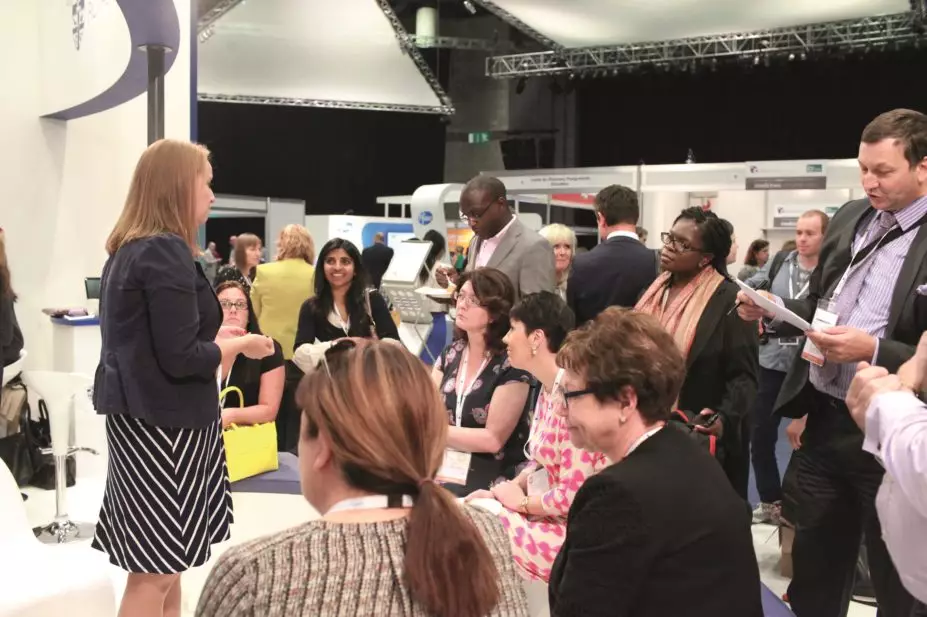
Nadia Attura / Royal Pharmaceutical Society
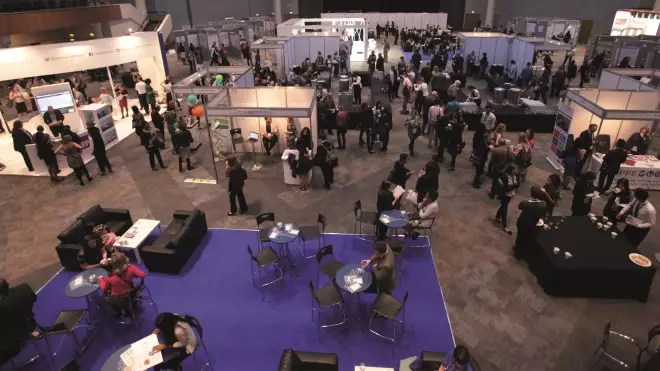
Source: Nadia Attura / Royal Pharmaceutical Society
Pharmacy conferences provide excellent opportunities to disseminate research, share best practice, network with colleagues and refresh clinical knowledge. However, if a meeting is poorly organised or if delegates do not seize the opportunities that such an event affords, attending a conference can be both expensive and pointless. For those new to the conference circuit, the number of pharmacy conferences on offer can be overwhelming and a little intimidating. So what benefit do delegates derive from attending conferences, and how can individuals determine which conferences are worth attending?
Considerations for potential delegates
Nina Barnett, consultant pharmacist at North West London Hospitals Foundation Trust, uses the opportunity of going to conferences to develop contacts for potential collaboration and future learning. Barnett explains that conferences allow her to “learn new information about a subject, network with other people working in a similar field, and to read posters and develop ideas for innovation”. An agenda packed with speakers who are leaders in their field is, therefore, vital. “This is one of the most important factors,” she emphasises. Catriona Bradley, executive director for the Irish Institute of Pharmacy, adds, “It has to be relevant, which conferences such as those organised by the International Pharmaceutical Federation (FIP) always are.”

Source: Courtesy of Catriona Bradley
Catriona Bradley, executive director for the Irish Institute of Pharmacy, advises first-time conference delegates to attend sessions organised specifically for individuals new to the conference circuit
Stephen Messham, President of the British Pharmaceutical Students’ Association (BPSA), also highlights the importance of networking at conferences. “A successful conference is one where I make a number of new connections and reconnect with existing contacts.”
However, for those who have not previously attended a conference, the thought of networking can be quite daunting. Bradley recalls feeling intimidated when she first started attending conferences. “Everyone seemed to know each other,” she says. “After a few years, I started to build my network because I kept encountering the same people at the sessions I attended. Once we connected, we found that we had very similar interests. It is certainly easier if you know a few people who are attending.”
Locum pharmacist Ross Ferguson, who writes and edits
Pharmacy in Practice
, also believes the agenda is central to his decision to attend a conference. “I attend conferences, because they are an opportunity to hear pharmacy leaders talk and answer questions, which gives me a greater insight into what is happening within the profession,” he explains.
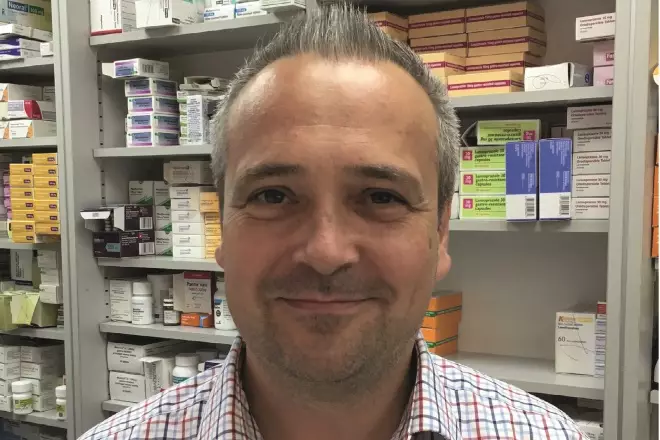
Source: Courtesy of Ross Ferguson
Locum pharmacist and writer / editor for Pharmacy in Practice Ross Ferguson attends conferences because they are an opportunity to “hear pharmacy leaders talk and answer questions”
If an agenda is of interest to Ferguson, he then looks at the location and costs of attending. “Is it worthwhile potentially losing a day’s paid work or using my weekend to attend?” he considers. “Does it involve other costs: plane flight, train or hotel?” Bradley and Barnett agree that convenience of location, cost and timing of the conference are major factors in their decision whether or not to attend.
Preparation is key
Once pharmacy professionals have made the decision to attend a conference, it is important they plan their experience properly in order to make the most of the opportunity.
Barnett advises making a list of what you want to get out of the conference, both personally and for the organisation that is paying for you, if appropriate. “Research the speakers and the subjects to ensure they are relevant to you or your organisation,” she adds.

Source: Courtesy of Nina Barnett
Nina Barnett, consultant pharmacist at North West London Hospitals Foundation Trust, advises delegates to make a list of what they want to get out of the conference
Bradley highlights, “The advantage of the conference setting is that you can usually speak to presenters during the day or during evening events, so make the most of that opportunity”.
“If you are a first timer, it is natural to feel a bit nervous or anxious, particularly if you don’t know anyone else,” adds Bradley. “Attend any first-timer sessions that are organised so that you can meet people in the same situation. And if you do already know some people at the conference, resist the temptation to stick with those you know.”
Ferguson suggests connecting with other delegates before arriving via the conference’s social media page. “See who else is going and agree to meet if you are worried about not knowing anyone.” For Messham, easy conversation starters include asking what a person does or enquiring about their thoughts on previous sessions or the programme.

Source: Courtesy of Stephen Messham
Stephen Messham, President of the British Pharmaceutical Students’ Association describes a successful conference as “one where I make a number of new connections and reconnect with existing contacts”
Messham prefers conferences with several parallel streams to enable him to choose which sessions to attend. In these situations, Ferguson recommends organising a timetable so you know where to be and when. He adds, “If possible, leave time to mingle with others too.”
This, for Ferguson, is the mark of a successful conference. “Learning something new, hearing a passionate, engaging speaker articulate their views, and having a great time with pharmacy peers and colleagues makes the event worthwhile,” he emphasises.
Speak easy
Delegates are not the only ones to benefit from attending conferences — speakers have the chance to share their research or practice and be constructively appraised by their peers. Bradley encourages everyone to contribute at a conference if possible. “Be prepared to engage in sessions and if there is an opportunity to present your work as a poster or oral presentation, do so. This is a valuable way of receiving feedback on your work and connecting with people who have similar interests.”
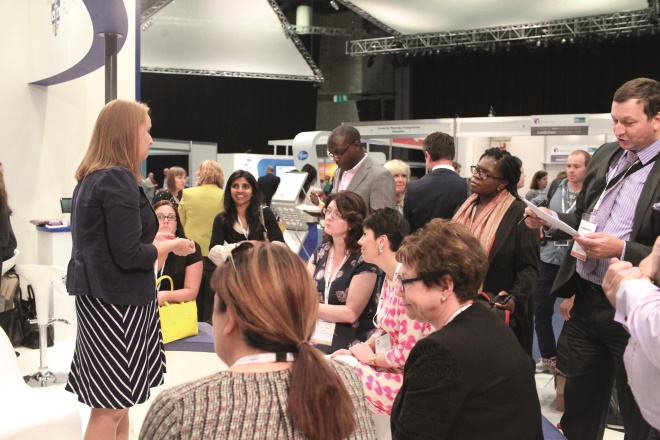
Source: Nadia Attura / Royal Pharmaceutical Society
Delegates at a faculty discussion during a previous Royal Pharmaceutical Society conference
Shared interests are important for Barnett when deciding whether to speak at an event. When putting together a presentation, she enquires about who the audience is, what their areas of interest are and level of expertise. “I then find out what the main focus of the conference is so that I can align my presentation to this. Finally, I identify content that is relevant to both the audience and conference,” she explains.
A presentation has been a success, Barnett says, if the audience participates or engages in conversation after her presentation.
Meeting expectations
If this is what delegates and speakers expect from a meeting, it is the role of the conference organisers to ensure that the event delivers in terms of both content and logistics. High-quality content can only support a badly organised meeting to a certain extent; likewise, delegates will only benefit from a well-run meeting if their learning is enhanced, or if there are opportunities to widen their network. Messham, Bradley, Barnett and Ferguson all agree that a poorly organised conference or inconvenient location would deter them from attending future events.
Bharat Shah, managing director of Sigma Pharmaceuticals, organises an overseas conference for UK pharmacists annually. “The most important advice for organising a conference is to find a good venue and to put up a good conference programme,” he says.
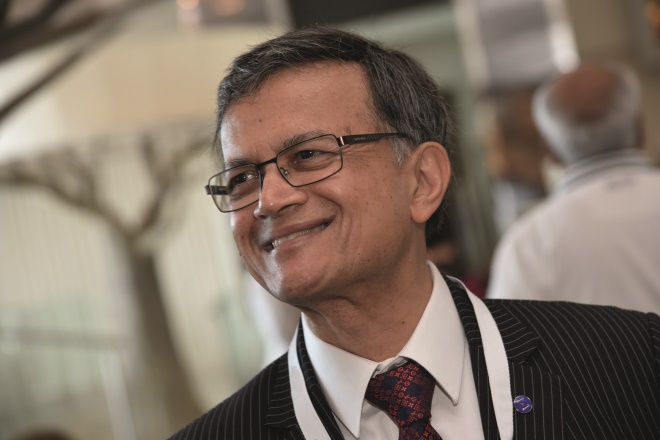
Source: Courtesy of Bharat Shah
Bharat Shah, managing director of Sigma Pharmaceuticals, explains that the selection of speakers is based on what the current ‘hot topics’ in pharmacy are
“The venue has to have at least 200 rooms available, a conference facility large enough to hold 250 delegates and a private dining facility to hold up to 400 people,” he adds. Although hosting conferences overseas can have benefits, including offering a social programme for delegates outside of business days, attracting delegates to potentially inconvenient locations can be challenging, Shah says. This is in addition to unforeseen events, such as delayed flights, sickness and unstable political climates.
Messham has been involved in organising the annual BPSA conference and says finding delegates can be difficult, even in domestic locations. “Social media, emails and other channels only have limited reach,” he explains. “However, sometimes quantity is not quality. A smaller conference with a more interactive programme can be more effective than a huge delegate list with university-style lectures.”
Barnett believes that pharmacy conferences are particularly good for attracting large audiences, especially if they are free and in a convenient location. This can mean they are useful for disseminating information and good practice via poster presentations. However, she highlights that pharmacy conferences would benefit from attracting leading speakers from other health professions to present on matters relevant to pharmacy.
Devising the agenda is core to organising a conference. Messham notes that finding inspirational topics and speakers is vital to the success of the event. This is usually from the organiser’s prior experience of speakers and sessions.
Shah explains that the selection of speakers is based on the current ‘hot topics’ in pharmacy. He adds, “Apart from the conference agenda, you must organise a good social programme so that people network and talk to each other. In my opinion, a blend of the business and social programme is very important for a successful conference”.
Ultimately, well organised conferences with carefully considered agendas can provide an excellent opportunity for pharmacists to engage with their profession and be inspired. “Just connecting back with the vision of the wider profession can be energising,” Bradley says. Messham adds, “A successful conference is one where I come away feeling inspired and excited about the future”.
| Conference | Location | Dates |
|---|---|---|
Gothenburg, Sweden | 21–23 March 2018 | |
Keele, England | 25 March–1 April 2018 | |
London, England | 27–28 April 2018 | |
The Association of Pharmacy Technicians UK Annual Conference | Glasgow, Scotland | 17 – 18 June 2018 |
Glasgow, Scotland | 2–6 September 2018 | |
Birmingham, England | 12–14 October 2018 |
The 78th FIP World Congress will be hosted by the Royal Pharmaceutical Society in Glasgow from 2–6 September 2018. This is the first time for nearly 40 years that the FIP World Congress has been held in the UK. Registration is now open and more information on the event can be found here.
Reading this article counts towards your CPD
You can use the following forms to record your learning and action points from this article from Pharmaceutical Journal Publications.
Your CPD module results are stored against your account here at The Pharmaceutical Journal. You must be registered and logged into the site to do this. To review your module results, go to the ‘My Account’ tab and then ‘My CPD’.
Any training, learning or development activities that you undertake for CPD can also be recorded as evidence as part of your RPS Faculty practice-based portfolio when preparing for Faculty membership. To start your RPS Faculty journey today, access the portfolio and tools at www.rpharms.com/Faculty
If your learning was planned in advance, please click:
If your learning was spontaneous, please click:
You may also be interested in
The importance of diverse clinical imagery within health education

Entrustable professional activities: a new approach to supervising trainee pharmacists on clinical placements
